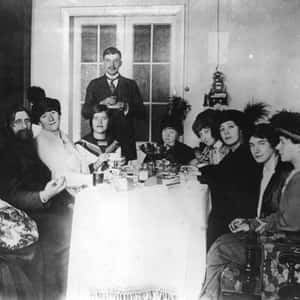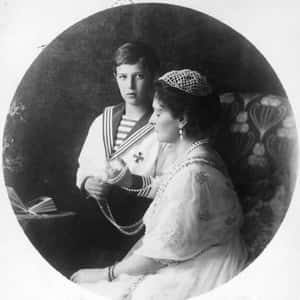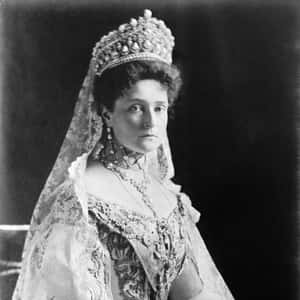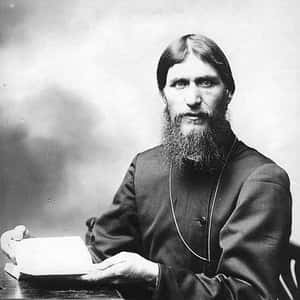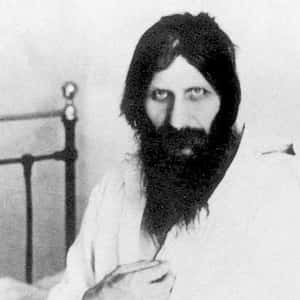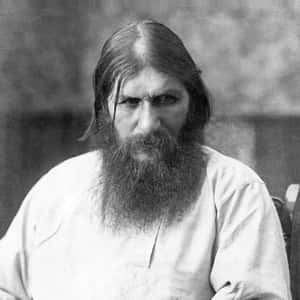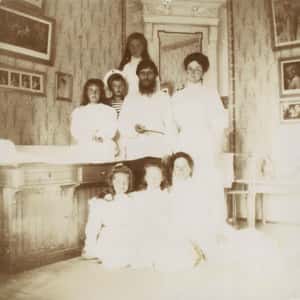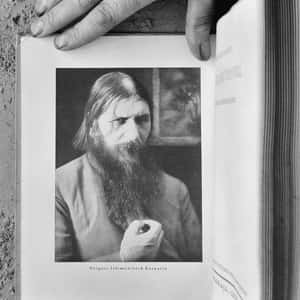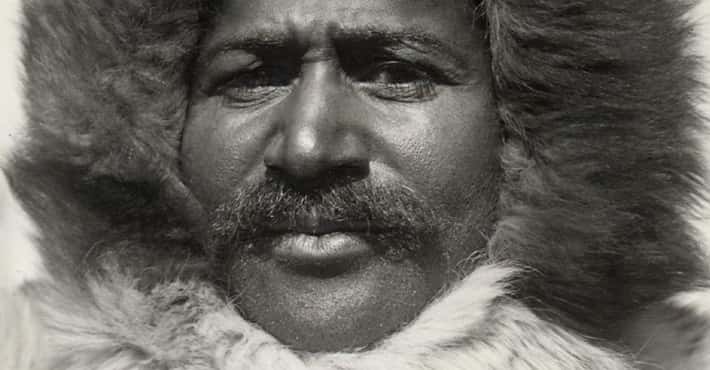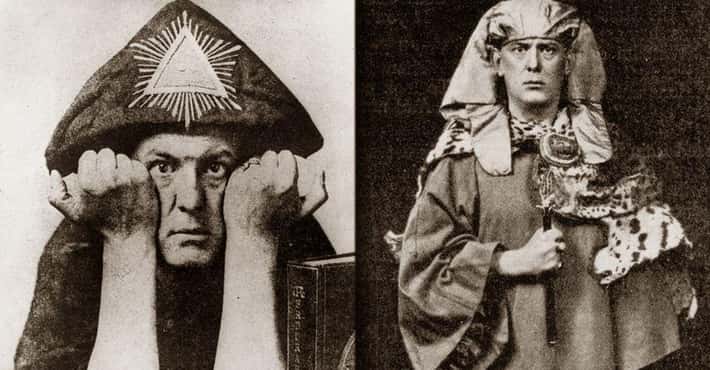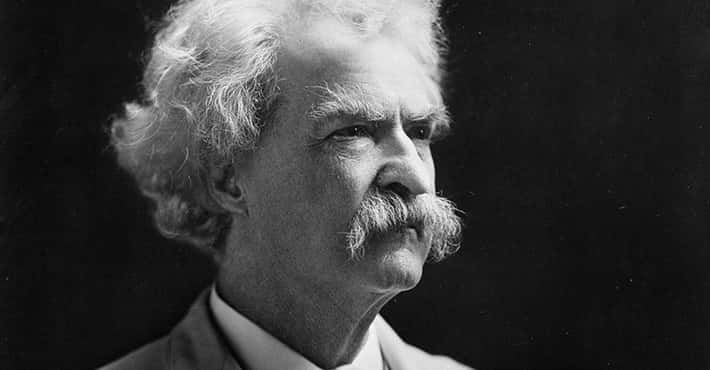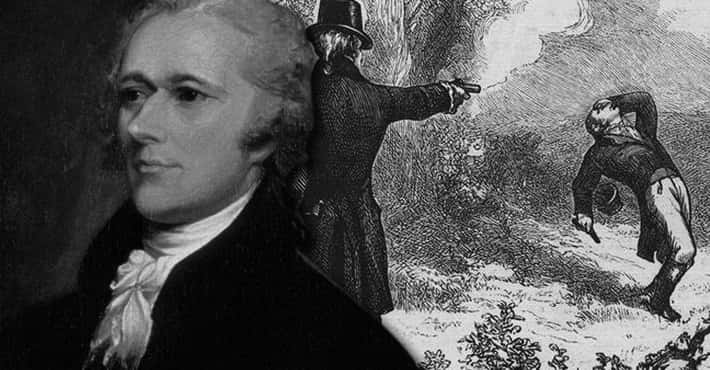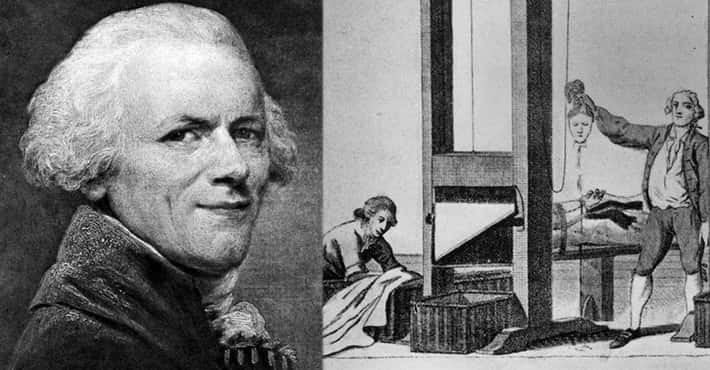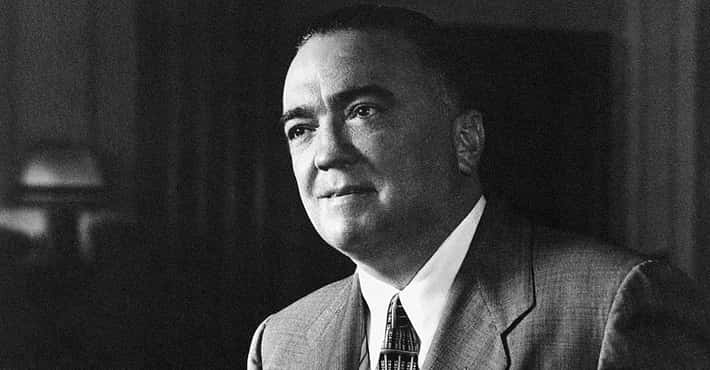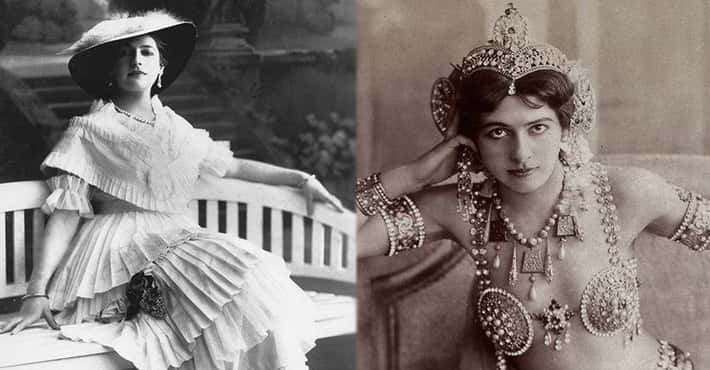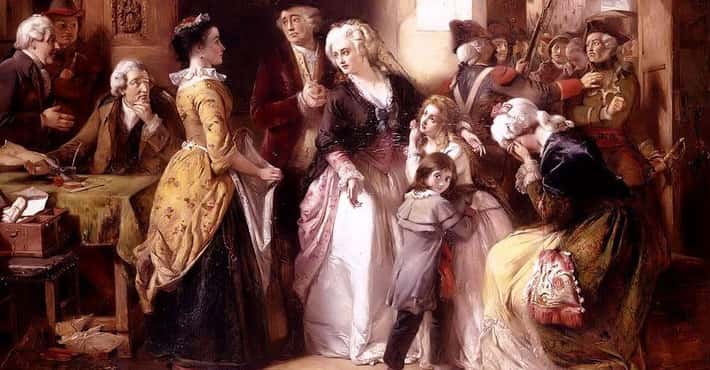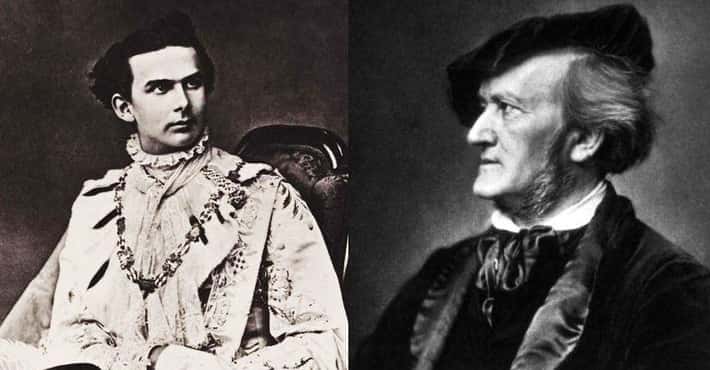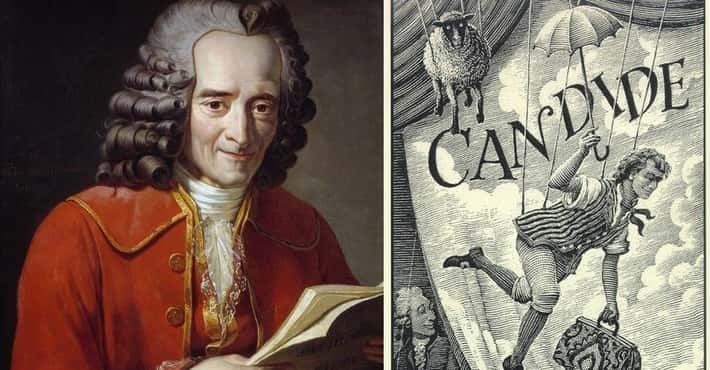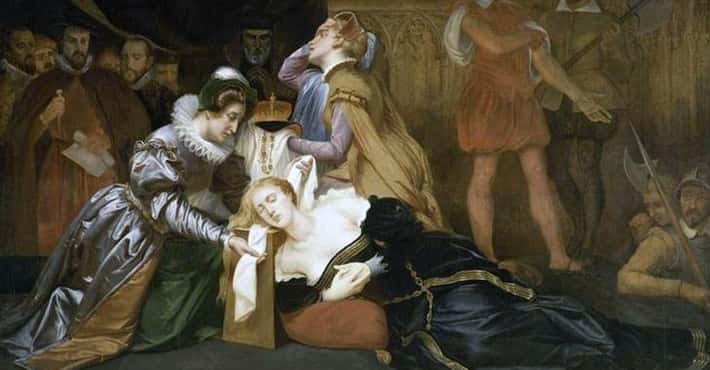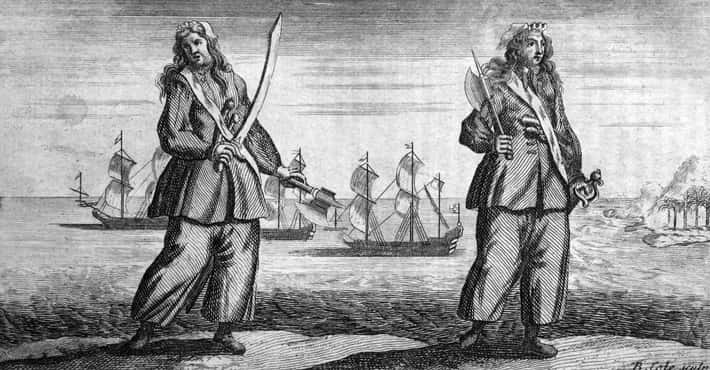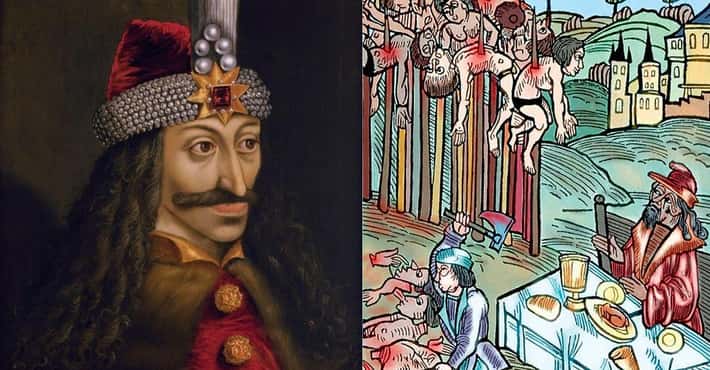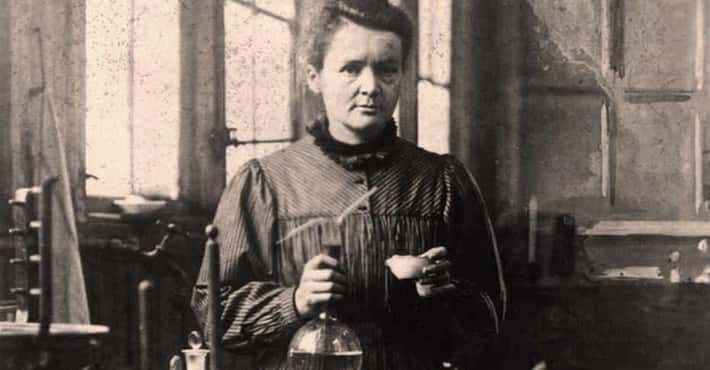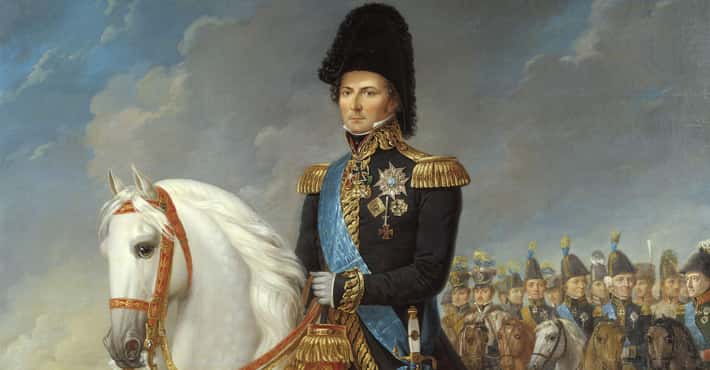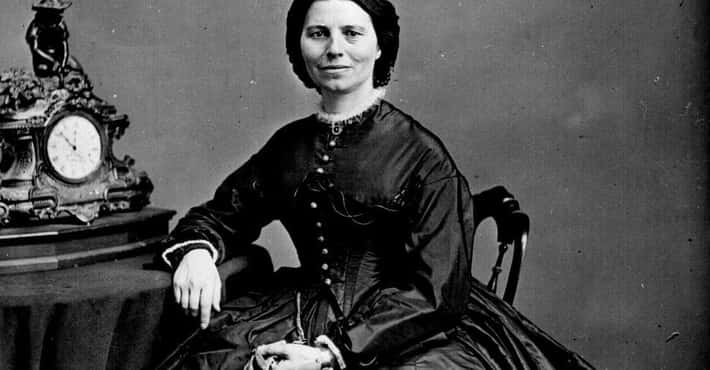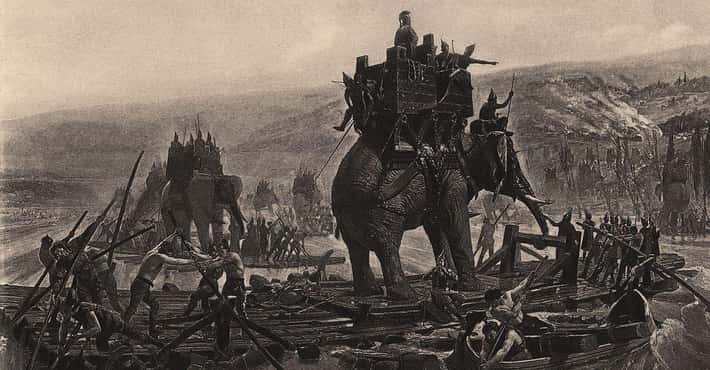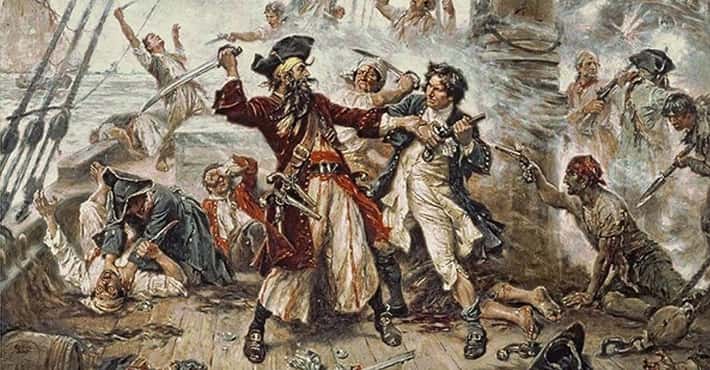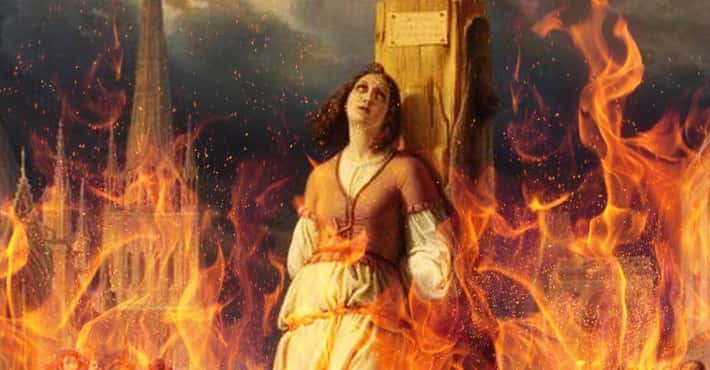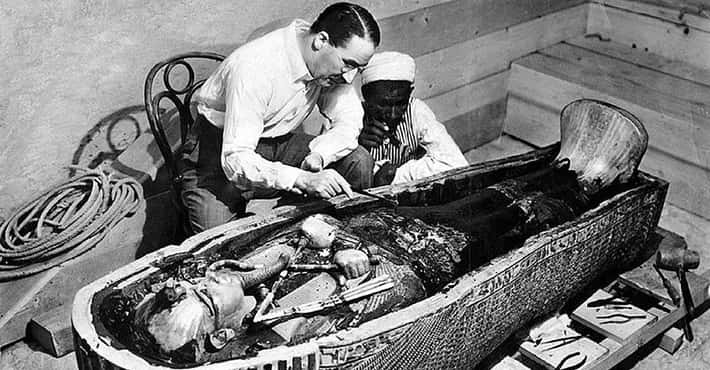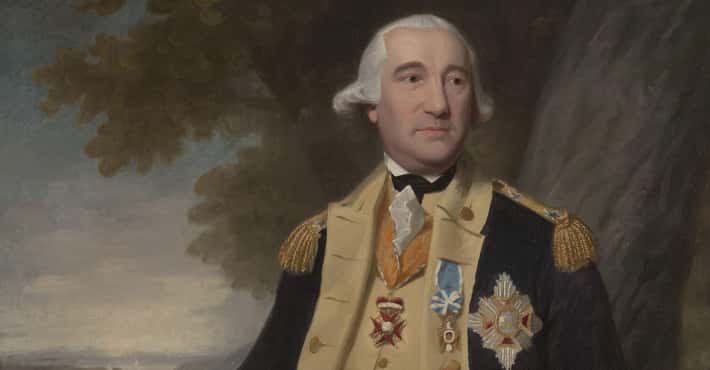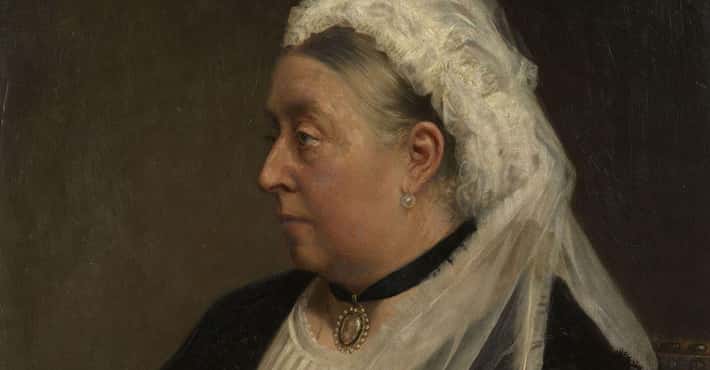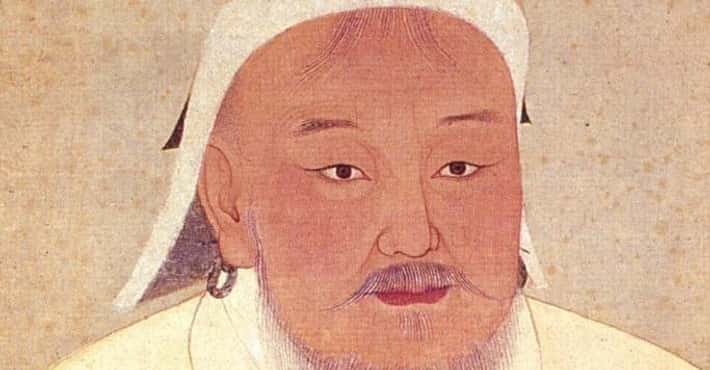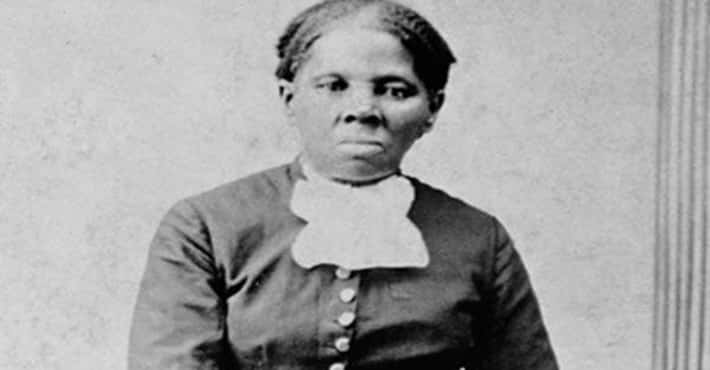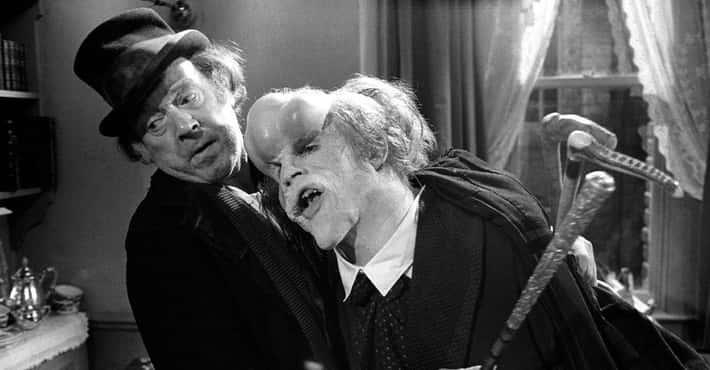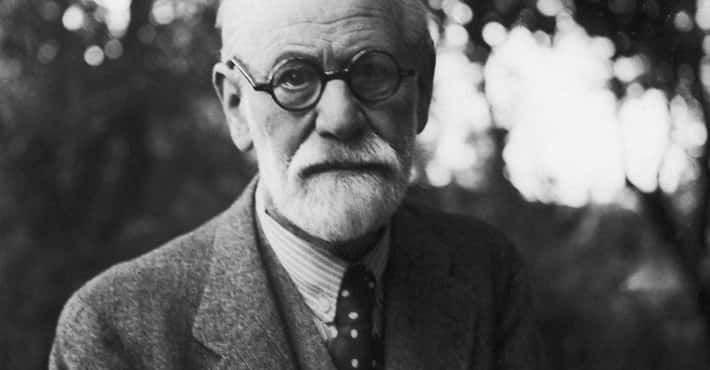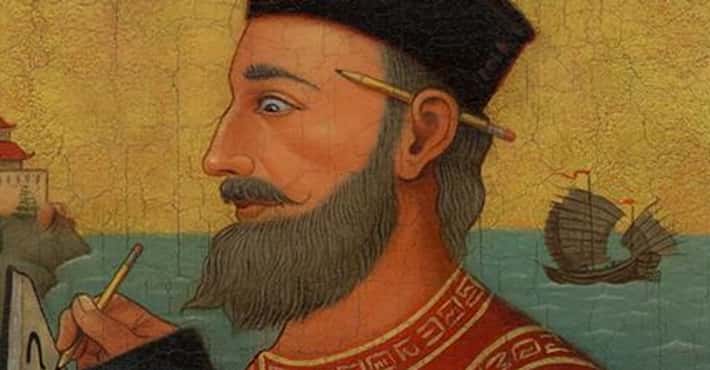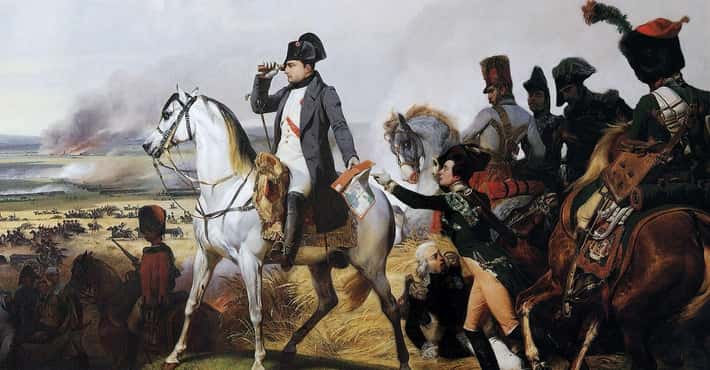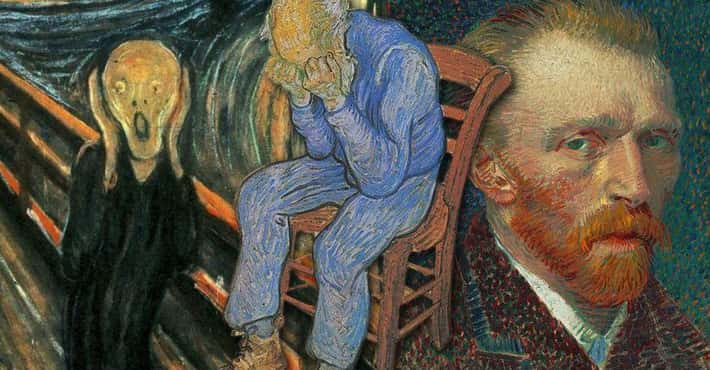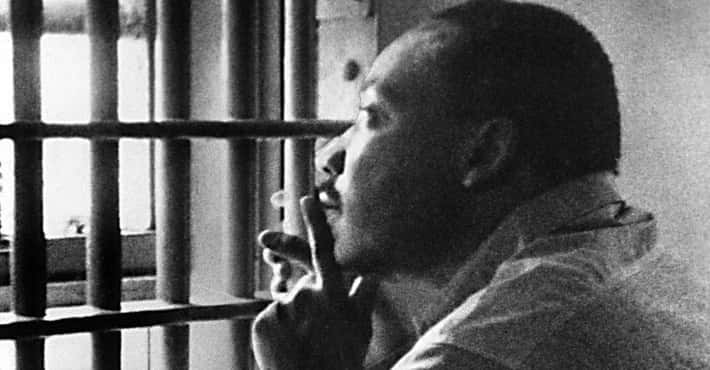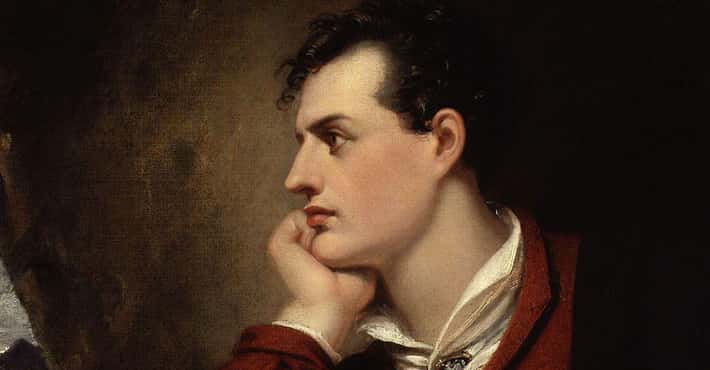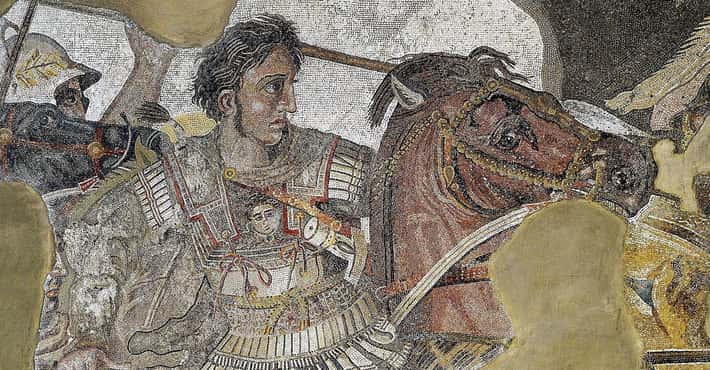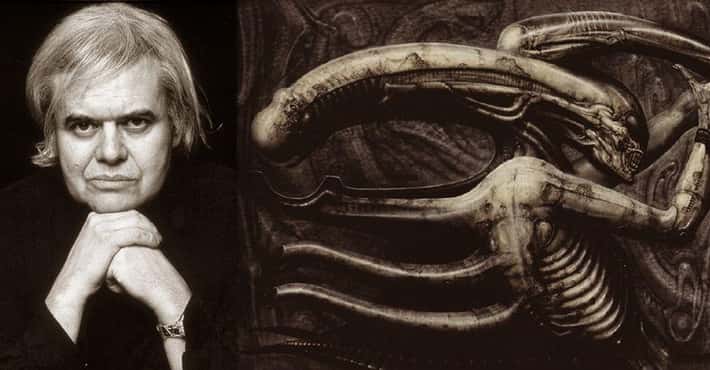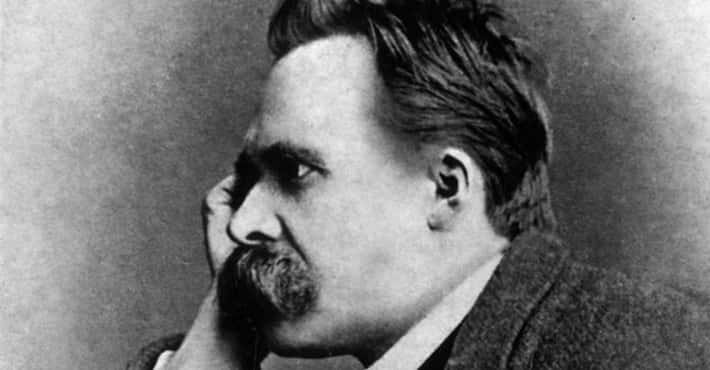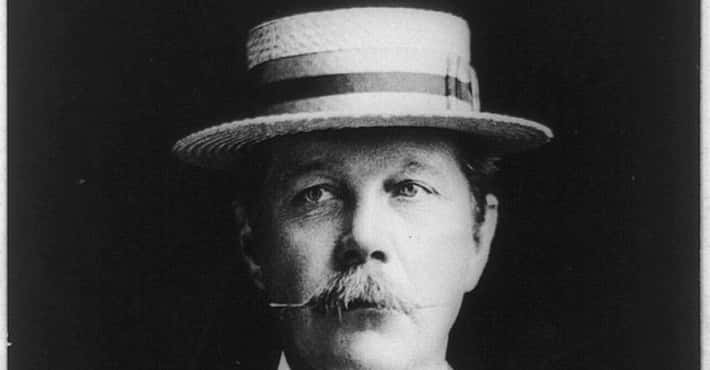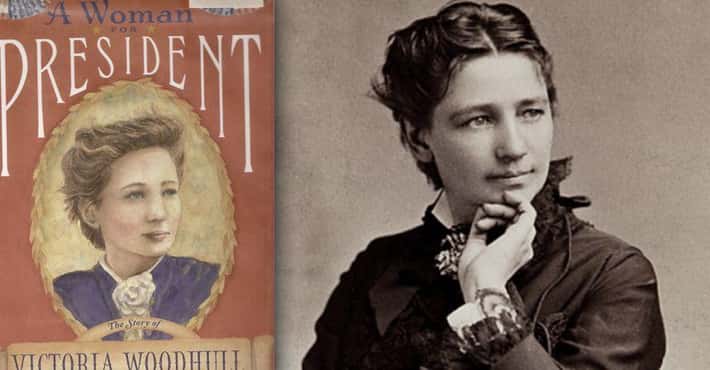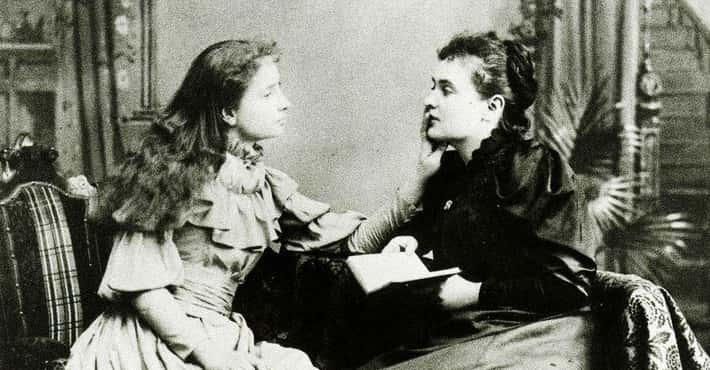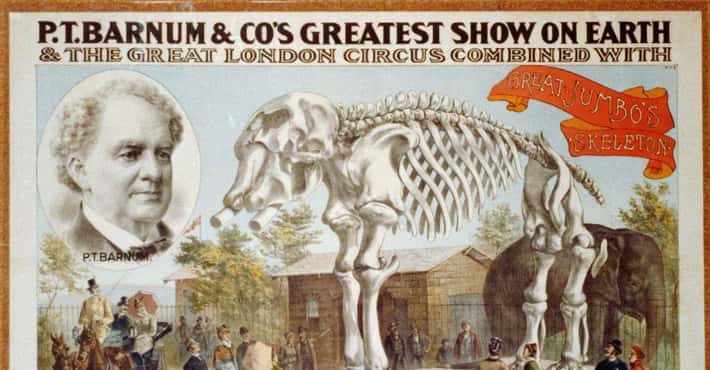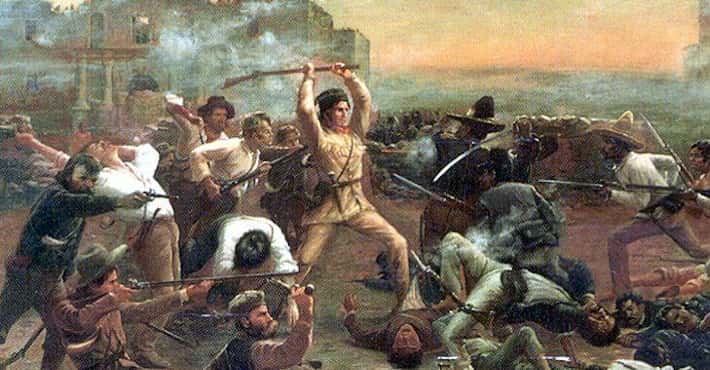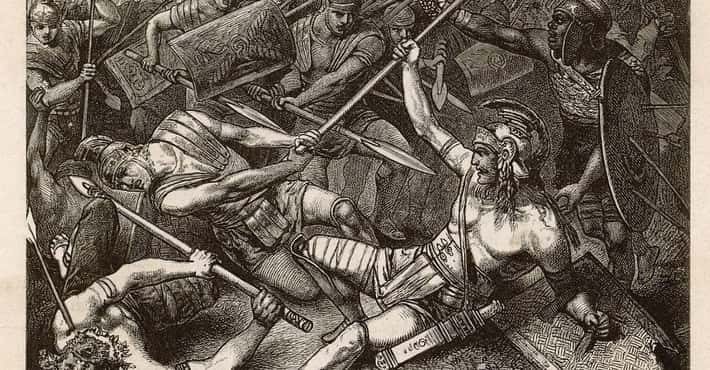The Enduring Mystery Of Rasputin, Imperial Russia's Secret Shadow Master
He Was A Self-Styled Holy Man Who Claimed He Had Mystical Abilities
Rasputin was one of the most mystical men in Russia - indeed, he actually believed that he had mystical abilities. But at the same time, he regularly slept with sex workers. The Russian establishment quickly latched onto this information and used it to discredit Rasputin. He was even rumored to have intercourse with his female followers, of whom he made many. Rasputin actually used the rumors to his advantage by claiming he could heal people by sleeping with them.
When Rasputin was a young man wandering in search of his spirituality, he may have taken up with a religious sect known as the Khlysty. The Khlysty's name was similar to the Russian word for "whip." They were rumored to participate in orgies and flagellation, among other things altogether scandalous in early 20th-century Russia. A number of investigations into Rasputin's connection with the Khlysty came up empty-handed, suggesting that Rasputin probably was never a member. The rumors, however, are enough to show the fear and mystery that surrounded the man.
Ladies In The Imperial Court Obsessed Over Him Despite His Terrible Hygiene
Critics often complained about his hygiene, using it as evidence that an uncouth man such as Rasputin had no place near the imperial family. He wore dirty clothes, even in the presence of the imperial family. In fact, he once boasted he hadn't changed his underwear for six months. He usually had bits of food stuck in his beard, he licked serving spoons before serving others, and used his fingers to tear bread and fish. He was terribly uncouth in both manner and hygiene, but to his admirers that was part of his charm. He stood apart from the well-mannered aristocracy, and some believe he exaggerated what others thought were taboo in order to entice people.
By 1905, Rasputin's reputation as a mystical healer and man of faith had reached the imperial court at St. Petersburg. Soon, aristocrats were flocking to him and parading him at their salons and parties. Ladies, in particular, were drawn to Rasputin. To them, his filthy and unkempt appearance perhaps evoked a robust, wild authenticity that was stifled by aristocratic life. He often invited women to bathe with him and personally wash him. Historian Abraham Ascher even notes, "Some men actually felt honored to be cuckolded by the lascivious monk."
He Helped The Tsarevich During His Painful Episodes Of Hemophilia
Tsar Nicholas and Tsarina Alexandra were a famous love match with a happy home life. The glaring exception to this was the health of their beloved son, Alexei. Alexei was the youngest of the couple's five children - and he was the only son and heir. So when the dreaded symptoms of hemophilia - a hereditary disease that plagued many royal houses in Europe, thanks to their genetic link to Queen Victoria, the so-called "Grandmother of Europe" - first appeared while he was a baby, anxiety for Alexei's health consumed the imperial couple. Though they tried various doctors, their son's health wasn't improving.
In 1908, Nicholas and Alexandra summoned Rasputin to the palace to treat Alexei after they had heard about his mystical abilities at court. And he seemed to help: whenever Rasputin was around, Alexei's episodes seemed less severe and painful. Historians still can't quite explain why Rasputin, more than anyone else, appeared to significantly lessen Alexei's suffering. Some claim he used hypnosis on the imperial prince, while others insist he simply could calm the boy and enable him to relax. Whatever the case, Alexandra came to believe that her son's safety depended on Rasputin.
Claims of Rasputin's mystical powers, however, are highly dubious, and many scholars have questioned the physical possibilities of his healing abilities. Looking through historical and physical evidence some hematologists have even concluded the young prince's hemophilia diagnosis was incorrect and he may have suffered from hemolytic anemia, which could explain why his cases of hemorrhaging stopped.
Rumors Emerged That The Tsarina Was Having An Affair With Him
For all of her son's life, Alexandra was wracked with anxiety over his health. So she had an almost obsessive trust in Rasputin, the only man who seemed to ease Alexei's suffering. She was also attracted to mysticism. As a German princess, Alexandra had been raised a Lutheran. But when she married Nicholas and became empress in 1894, Alexandra converted to Russian Orthodox Christianity, the official religion of Russia. She was a zealous, eager convert who enthusiastically embraced its mysticism. She thus continued to rely more and more on Rasputin, a man whom she viewed with the utmost reverence and admiration as her son's savior.
The German-born Tsarina Alexandra was far from popular with the people of Russia. Her unpopularity only increased during World War I, when anti-German sentiment reached a fever pitch. While her husband managed the war, some felt that the tsarina was becoming too close to Rasputin. Rumors circulated that the two were involved in an illicit affair. There is no evidence, however, to suggest those rumors were true.
He Was Criticized For Having A Strong Political Presence In The Royal Court
After Rasputin's success in easing the suffering of the young tsarevich, he was able to amass and wield greater authority and influence with the imperial family. So reverential were they of Rasputin's power and abilities that Nicholas and Alexandra dismissed allegations about his licentious ways.
Rasputin ultimately gained political influence. During World War I, many of the "mad monk's" critics blamed him for the disastrous war effort. In the memoirs of Prince Felix Yusupov, one of the people who assassinated Rasputin, Yusupov claimed Rasputin had personally influenced the Tsar to take control as commander-in-chief of Russia's entire military as it was in "Rasputin's interest to remove him as far from St. Petersburg as possible." With the czar out of the way, Rasputin could then take control of Tsarina Alexandra and, in turn, the country.
Whether or not Yusupov's claims were true are still debatable. Letter correspondence between Alexandra and Nicholas show that neither Alexandra nor Rasputin wanted Nicholas to leave, believing the military would try to sway him against the advisors in his court and his leaving would only put the imperial hegemony in greater jeopardy.
Regardless of whether Rasputin convinced the Tsar to leave St. Petersburg or tried to convince him to stay, Nicholas assumed command in 1915 and it proved disastrous both internationally and domestically.
He Was So Hated By The Public That People Tried To Take His Life
Thanks to the growing hostility towards him in the imperial court, many powerful people attempted to get rid of Rasputin. As a result, a handful of assassination plots were concocted, all of which reached various stages of fruition. One plot was hatched by an excommunicated monk Iliodor who planned to hire sex workers to seduce Rasputin and then castrate him. The plot was abandoned once Rasputin caught wind of it.
One woman who was a follower of Iliodor, Khionia Guseva, however, had heard all sorts of sordid tales about Rasputin the Mad Monk, and even believed that he was the Antichrist. So in June 1914, she stabbed him in the stomach on the streets of Pokrovskoe.
Given Rasputin's prominence, the Okhrana (the tsar's secret police) kept tabs on him. After the assassination attempt, Okhrana officers were stationed ostensibly as bodyguards for Rasputin. But they weren't always acting in his interest; they were also tracking his every move and gathering intelligence about him. They often reported on rumors surrounding Rasputin and read through his mail.
The Story Of His Death Has Become A Popular Urban Legend
On December 29, 1916, a group of noblemen - including the tsar's cousin Grand Duke Dmitri Pavlovich - sought to rid Russia of the Mad Monk once and for all. So, they lured Rasputin to the home of Prince Felix Yusupov with the promise of women, food, and booze.
What happened next remains largely unknown. But according to legend, the noblemen proceeded to ply Rasputin with wine and cakes laced with poison. Though the monk consumed an astonishing quantity, it seemed to have no effect. So they resorted to shooting him. When that didn't work, they bludgeoned him, wrapped his body in a rug, and dumped it into the Neva River.
According to Yusupov, when the body was pulled from the river there was water in his lungs. In other words, he was still alive when the nobles cast him off into the river.
The account is highly disputed; the most notable criticisms come from Rasputin's daughter Maria. Maria claimed Yusupov's story was obviously an exaggeration. Though she wasn't there to witness her father's death, she knew he wouldn't be enticed to eat a whole platter of cakes since he didn't like to eat sweets. The autopsy supposedly strengthened her claim since there was no evidence of either poison nor water in his body, it concluded he was shot in the head. The official autopsy, however, disappeared during Stalin's regime twenty years later.
Despite evidence against Yusupov's story, his account has been passed down through pop culture.
He May Have Predicted His Own Death And The Fall Of The Romanovs
Rasputin claimed the ability to predict the future. Some of his predictions - like that the world would end in August 2013 - didn't come true. But some of his other predictions had some veracity.
In a letter allegedly written by Rasputin to Tsar Nicholas II at the end of 1916, he predicted his own death as well as the fall of the Romanov dynasty:
I feel that I shall leave life before January 1... if it was your relations who had wrought my death then no one in the family, that is to say, none of your children or relations, will remain alive for more than two years. They will be killed by the Russian people.
Rasputin was assassinated on the night of December 29, 1916, by a group of noblemen that included Nicholas's own cousin, Grand Duke Dmitri Pavlovich. In July 1918, Nicholas, Alexandra, and their five beloved children were killed by a group of Bolsheviks in a small basement amid the Russian Revolution.
Parts Of The Enigmatic Figure's Afterlife Are As Mysterious As His Life
Rasputin continued to fascinate, disturb, and cause controversy in death, as he had in life. After he had been pulled from the Neva River, the empress buried him at Tsarskoe Selo. But his body wasn't there for long: on March 11, 1917 - just weeks after Nicholas II had abdicated and months after Rasputin's death - his corpse was dug up with the intention of burning it. After the body was thrown onto a bonfire, it looked as though Rasputin was sitting up as the flames engulfed him.
The original copy of Rasputin's autopsy report disappeared during the Stalin regime, along with some of the people who participated in the post-mortem, facts that add to the mystery surrounding his life and death.
After Rasputin's death, rumors circulated that his assassins had cut off his member. So prevalent were these rumors, that multiple people claimed to possess the severed organ, one of whom even used it as a relic for prayer.
The autopsy report, however, refutes this urban legend. Not only was Rasputin fully intact, as it were, but his genitals may have actually been damaged from syphilis, alcoholism, and a beating.



